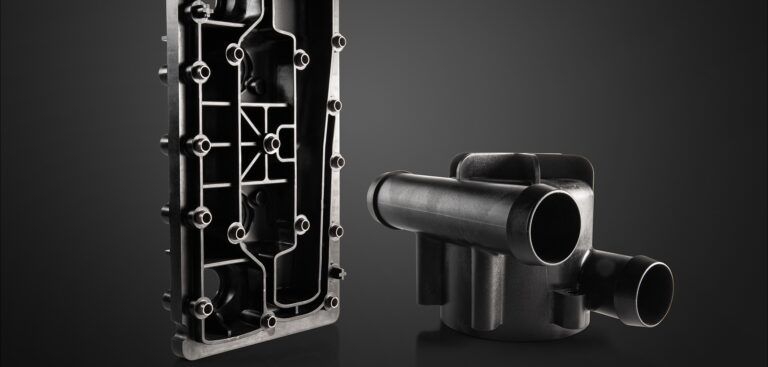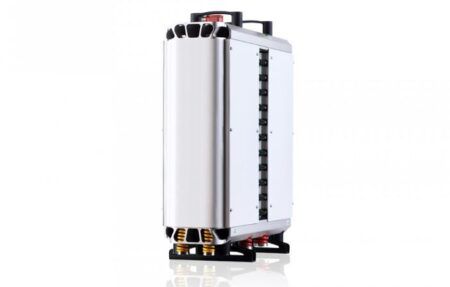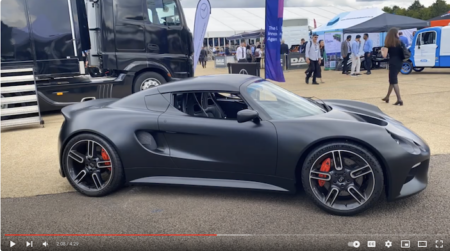The American manufacturer of heavy-duty, zero-emission engines Nuvera Fuel Cells, Billerica, Massachusetts is now using BASF’s polyphthalamide (PPA) Ultramid Advanced N to manufacture several components in its latest generation of 45 kW fuel cell engines.
The fuel cell engines will be integrated into transit buses and delivery vehicles in China over the next three years. The components, such as manifold, thermostat housing, check valve, ejector as well as exhaust pipes, require stable material properties across varying temperatures. Ultramid Advanced N3HG6 shows excellent thermal and chemical resistance, outstanding mechanical properties, high impact strength, good dimensional stability and a stable long-term performance. As some of the components are exposed to a variety of media through the cooling water, air and hydrogen channels, the PPA compound based on PA9T combines excellent chemical resistance with meeting the purity requirements for sensitive applications in fuel cells and electronic parts.
Nuvera’s challenge for the E-45 fuel cell engine was to find a lightweight solution to convert various parts from die-cast aluminum and high-temperature hoses into high-performance plastics to scale up fuel cell engines to mass-produced parts while maintaining performance and safety. For this, Ultramid Advanced N3HG6 provides the safety and quality of the engine parts: It shows excellent stiffness and strength, a high toughness as well as a good wear and friction behavior. It successfully proved in extensive tests for coolant applications that it can withstand a continuous use temperature of 105°C for 10,000 to 20,000 hours in a mixture of ethylene glycol, water and hydrogen. The BASF PPA also allows for very low fuel and gas permeation as well as low volatiles so that corrosion or fouling of the engine system is prevented.
“In order to retain market share while meeting expanding regulatory requirements, vehicle manufacturers need to offer customers zero-emission options that are also practical to own, operate and maintain, while delivering the power needed to get the job done,”said Gus Block, director of marketing and government affairs at Nuvera Fuel Cells. “Fuel cells are the best answer to meet these demands for many commercial and industrial vehicles. With BASF’s PPA, its application know-how and tailored technical services, we managed to lower the cost per unit compared to metal solutions while getting to market on time. What really impressed us was the speed and effectiveness with which BASF was able to assist with design support on some of the critical parts, such as manifold covers, in the first approach.”
The Nuvera E-45 Fuel Cell Engine can power mid- and heavy-duty vehicles such as buses, trucks, and delivery vans, as well as industrial trucks and other off-road vehicles.
“Especially the conditioned continuous use temperature demands were higher than typical plastics could deliver,” said Jim Peet, business development manager for PPA at BASF. “With our expertise for plastic automotive components, along with our CAE support using Ultrasim and our extensive polyphthalamide portfolio, we were able to provide the appropriate material for the different fuel cell parts. This approach allowed us to help Nuvera develop these challenging new applications with optimized performance for one of the key technologies of the future.”
One of the services provided by BASF was the design optimization with BASF’s simulation tool Ultrasim. For the manifold e.g., a filling and warp analysis was conducted: No leakage occurred after the first optimization of the parameters, which sped up the development of the manifold considerably. During the filling analysis, BASF and Nuvera discussed particular topics like weld lines, sealing and structural improvements.





